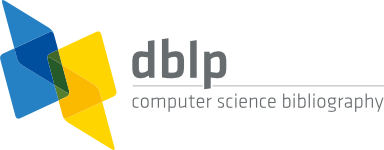SPECIAL ISSUES
[CLOSED] Role of digital technologies in maintaining sustainable healthcare services
2023.10.18
In recent days several aspects of everyday life have become digitalized. The health sector is growing more reliant on modern technologies to modernize health care and keep its services to customers at a socially acceptable level. The interaction of digital technologies and analytics has the potency to ultimately lead to better-individualized healthcare delivery, which could be more affordable. Nevertheless, several challenges require extensive research.
Machine learning techniques, algorithms, artificial intelligence, and statistical analysis are deployed to explore and analyze huge data volumes to anticipate specific patients' results. In the medical field, robotics promises enhanced diagnostics, reduced invasive procedures, higher precision, faster recuperation, and a reduced waiting period. Mobile health software, electronic patient records, predictive analytics, wearable technology, telemedicine and telehealth, and personalized medicine are a few of the applications of electronic technologies in healthcare. On the other hand, data collecting, data inconsistency, and data exchange are all emerging concerns related to digital technologies. The collected information of thousands of sick people and consolidating it into a digital structure accessible by various medical professionals is a demanding endeavour. The safety and integrity of the information, the moral risks and the absence of legislation, and algorithm errors are all problems associated with predictive analysis. Robotics' rise has unavoidably created fears of joblessness within human equivalents, with unskilled labour, in general, being displaced by robots. At the intersection of innovation and the digital realm, interoperability is simultaneously a risk and a possibility. Healthcare institutions and other medical groups may request exclusive fast lanes for clinical data congestion. Hence the problem of gross neutrality may be operationally relevant. When it comes to the intersection of healthcare and technology, cybersecurity is a huge concern. Data theft is becoming increasingly common because greater data is gathered, retained, and utilized. By virtue, health data is confidential, and data leaks greatly impact how the public perceives them. Hospitals and other healthcare practitioners are vulnerable to ransomware assaults. Smart devices made by companies that are not typically constrained by cybersecurity regulations will significantly influence the entire confidentiality of health data. With the adoption of modern health services and technologies in the advanced economies, the digital concerns that the developing world experiences, such as a dearth of dependable network architecture, are starting to emerge. The intersection of health and technology is crucially dependent on power and other necessary amenities and network connectivity. Many services necessitate robust connectivity, frequently for long periods with no interruptions, and generate large traffic volumes.
In conclusion, this special issue highlights the emerging applications of digital technologies in improving healthcare services and their underlying challenges. Researchers and practitioners are welcome to contribute innovative solutions for the same.
 SUBJECT COVERAGE
SUBJECT COVERAGE
Related Topics:
- 1. Potential of digital technologies in transforming healthcare services.
- 2. Role of emerging digital technologies in transforming healthcare services.
- 3. Recent trends and future directions of digital technologies in healthcare services.
- 4. Contribution of machine learning and artificial intelligence in improving healthcare services.
- 5. Big data and its role in predictive analysis in health care services.
- 6. The emergence of robotics in healthcare services.
- 7. Predictive analysis for disease diagnosis and treatment in healthcare services.
- 8. Precision medicine for delivering effective healthcare services.
- 9. Wearable devices for effective healthcare services.
- 10. Blockchain for healthcare services.
- 11. Challenges in implementation of digital technologies for healthcare services.
- 12. IoT for healthcare services.
- 13. Cybersecurity in implementing digital technology for healthcare services.
- 14. Policies and strategies in the successful implementation of digital technologies for healthcare services.
 SUBMISSION GUIDELINE
SUBMISSION GUIDELINE
Papers must be submitted to the Manuscript Link service - https://www.manuscriptlink.com/journals/jips.
It is important that authors should select "JIPS Survey / Special Issue" and " Role of digital technologies in maintaining sustainable
healthcare services" when they reach the "Basic Information" step in the
submission process. Before submitting papers, you need to read the JIPS submission guideline.
 Notification of APC
Notification of APC
US $890 or KRW 940,000
- Additional Fee: KRW 100,000 (US$100) per page (within 4 pages)
- Remark: The size must be within 11 pages including a photo and a profile (refer to the sample paper format).
 GUEST EDITORS
GUEST EDITORS
Dr.Aceng Sambas
Department of Mechanical Engineering, Universitas Muhammadiyah Tasikmalaya,
Tasikmalaya, Indonesia.
Email: acengs@umtas.ac.id, aceng.sambs@gmail.com
Dr. Sundarapandian Vaidyanathan
School of Electrical and Communication Engineering, Vel Tech University, Tamil Nadu, India
Email: sundarcontrol@gmail.com
Dr. Irene Moroz
Mathematical Institute, University of Oxford, Oxford OX2 6GG, England
Email: moroz@maths.ox.ac.uk
 Important Dates
Important Dates
- - Submission Deadline: 29th February, 2024
- - Authors Notification: 5th May, 2024
- - Revised Version Submission: 10th July, 2024
- - Final Decision Notification: 25th September, 2024









